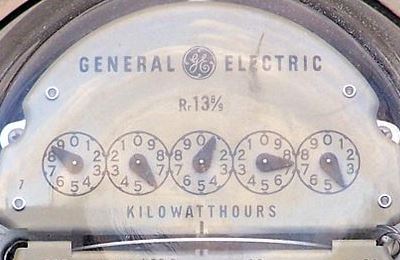General Electric Co. (NYSE: GE) has continued on its path to becoming an industrial conglomerate rather than being a conglomerate that is also valued as a bank and financial lender. With earnings due this Friday morning, GE likely will find itself in a position in which the actual earnings and long-term guidance are more difficult to compare than in past quarters. Synchrony Financial (NYSE: SYF) plays a deep role in what may be a complicated report.
GE is expected to post earnings of $0.28 per share on revenue of $28.7 billion. For 2015, estimates are $1.29 in earnings per share (EPS) on $31.04 billion in revenue. For 2016, the consensus estimates are $1.55 EPS and $130.7 billion in revenue.
What investors need to consider about GE is that we should get further details on how the Synchrony Financial divestment and spin-off will work. For the record, Synchrony also reports this Friday and its consensus estimates are $0.62 EPS and $2.77 billion in revenue.
ALSO READ: The 6 Most Shorted NYSE Stocks
What must be considered at GE right now are the many moving parts. These are just some of the issues at hand:
- The sale of GE Appliances to Electrolux for $3.3 billion is now being challenged.
- Synchrony earnings and revenues have to be backed out of 2016 estimates.
- GE has announced the sale of billions of dollars in financial assets.
- GE has run into repeated issues over its $17 billion planned Alstom buyout in Europe.
- Oil & Gas will almost certainly act as a huge drag on earnings right now, and that unit may be losing money now or ahead.
- And the U.S. dollar strength is also expected to hurt GE as it has other key exporters.
What matters now is that GE is likely to have lower earnings and revenues, and that is part of what makes it hard for investors. Wall Street wanted GE to shrink its financial assets and operations, but Wall Street hates when companies have shrinking revenue and earnings.
Wall Street loves when companies unlock value. That can be by asset sales, divestments or spin-offs. But what about when they are so big that they are noticed on the net income and revenues?
Another consideration is that GE likely will not be raising its dividend at the end of 2015 but will start buying back large chunks of GE shares to shrink its float.
Downsizing GE Capital came with roughly a $14 billion charge and may come with another $4 billion or so charge in the second quarter.
ALSO READ: 5 Dividend Stocks That Give You Consistent Raises
GE shares went to almost $29 after its announcements were made in April, but now GE shares are closer to $26.70 — and that is after a rally from under $26 in the past 10 days or so.
GE has managed to beat earnings expectations of late, but the move has come on weaker revenues. This and all the other moving parts are going to make GE very hard to interpret for many investors.
Over 60% of analysts have a Buy rating or the equivalent on GE, but trading at $26.70, it has a 52-week range of $23.41 to $28.68 and a consensus analyst price target up at $30.15. GE’s most bullish analyst target is up at $33.00.
Stay tuned.
Thank you for reading! Have some feedback for us?
Contact the 24/7 Wall St. editorial team.



